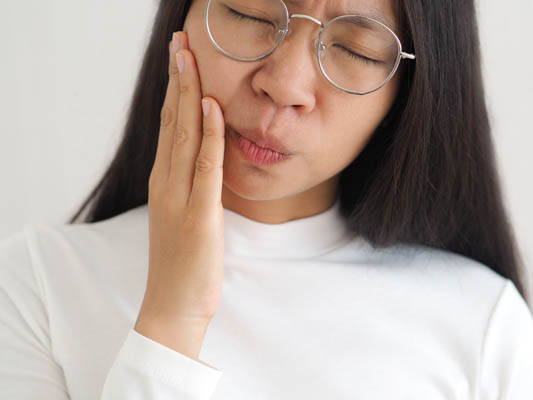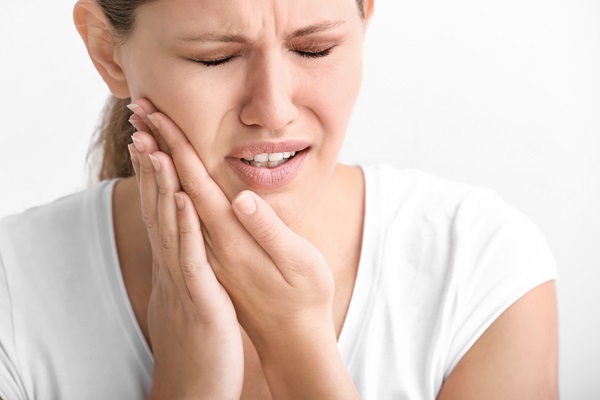How General Dentists Treat TMJ

Find out more about TMJ, a common jaw-related disorder. Visiting a general dentist allows individuals to receive a proper diagnosis, as well as understand how severe the TMJ is. Once diagnosed, treatment is the next step.
About TMJ
Understanding what TMJ is and how it can affect one’s oral health is important. Since TMJ can also affect one’s overall general health, treatment is often necessary. According to Healthline, TMJ disorders occur when something goes wrong with the jaw joints and jaw muscles. This can cause sufferers to experience minimal jaw-related complications or severe jaw-related complications. When it comes to what causes someone to be diagnosed with this disorder, arthritis, joint erosion, teeth clenching and teeth grinding are some of the more common causes.
Treating TMJ
There are a few different ways that a general dentist will treat a TMJ disorder in their patients. Since there are many different types of treatments available, it will depend on the patient's individual situation when it comes to the treatment options a dentist will offer them. Because it is possible for TMJ to worsen and/or become more severe, it is essential for anyone diagnosed with this disorder to undergo treatment from a general dentist.
The list below includes detailed information on three of the more common TMJ treatments.
#1 – Custom-made oral appliances
There are oral appliances available to help dental patients who are diagnosed with TMJ, which include bite guards and oral splints. An oral appliance is a removable dental device that works by helping to keep a patient's teeth and jaw in their proper positions, which is especially important during the night when sleeping. An oral appliance also helps TMJ patients from grinding or clenching their teeth, which is known to make certain cases of TMJ worse.
#2 – Prescribed medications
General dentists can provide their patients with anti-inflammatory medications in order to reduce any pain or swelling they experience from TMJ. This includes muscle relaxers, as many people who are diagnosed with TMJ often grind or clench their teeth, which tends to cause pain in the facial muscles. Anti-anxiety medication is also an option for some patients in order to help reduce their stress levels, which can reduce symptoms of TMJ.
#3 – Following recommended self-care practices at home
Patients who are diagnosed with a mild case of TMJ are likely to be given a sheet of self-care instructions to practice when at home. This list of instructions will be personalized for each individual patient, as every patient's case of TMJ is going to differ. Examples of self-care instructions include reducing the stress in one’s life, reducing any type of jaw movement that can exasperate the disorder, using ice to reduce any swelling, avoiding eating hard foods, avoiding chewing gum and performing certain jaw stretching exercises.
Need to make an appointment?
Need to be seen by a general dentist for TMJ reasons? Now that the above information has been read, it should be understood that there are many different treatment options that can help those suffering from TMJ-related discomfort or pain. In order for one to learn which options are going to work for them, making a dental appointment is the next step to take.
Request an appointment here: https://irvineimplantdentistry.com or call Canyon Dentistry at (949) 506-2117 for an appointment in our Irvine office.
Check out what others are saying about our dental services on Yelp: TMJ Dentist in Irvine, CA.
Recent Posts
Your TMJ (temporomandibular joint) is responsible for connecting the lower jaw to the upper jaw and the skull. Pain in this area can cause tenderness in your jaw muscles, jaw clicking, earaches, and headaches. This can disrupt your daily activities. If you want to know how your dentist can help with your TMJ pain, here…
TMJ refers to the temporomandibular joint, which is located near the jawline. When there is any sort of malfunction with the joint, the result is TMJ disorder. Sufferers of TMJ disorder tend to experience pain and difficulty performing things such as eating, smiling and speaking. TMJ pain has treatment options, including wearing oral appliances, practicing self-care…
Looking for information on common dental visit issues? If you are currently experiencing one of more issues with your oral health, then finding out more about what is going on is a good idea. When there is something wrong with your teeth or gums, the sooner you find out why, the better. If you do…
You can have an emergency dental visit with your general dentist. Knowing when you may need urgent dental care will prevent the dental problem from worsening. It will also relieve your pain and discomfort. If you want to know if you may need an emergency dental visit, here are the signs to watch out for.Persistent…


